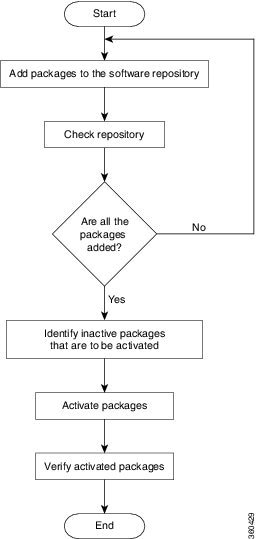Upgrading the System
Upgrading the system is the process of installing a new version of the Cisco IOS XR operating system on the router. The router comes preinstalled with the Cisco IOS XR image. However, you can install the new version in order to keep router features up to date. The system upgrade operation is performed from the XR VM. However, during system upgrade, the software that runs on both the XR VM and the System Admin VM get upgraded.
 Note |
If an interface on a router doesn’t have a configuration and is brought up by performing no-shut operation, then upon router reload, the interface state changes to admin-shutdown automatically. |
 Note |
Ensure that you have adequate disk space. Run the fsck command to check the status of the file system, for a successful IOS XR upgrade. You must run the fsck command in the System Admin EXEC mode to install a System Admin package, and in the XR EXEC mode to install the XR package. All install commands are applicable in both the System Admin EXEC mode and in XR EXEC mode. System Admin install operations are done from XR EXEC mode. |
Perform a system upgrade by installing a base package–Cisco IOS XR Unicast Routing Core Bundle. To install this bundle, run the install command. The filename for the Cisco IOS XR Unicast Routing Core Bundle bundle is ncs5k-mini-x.iso.
 Caution |
Do not perform any install operations when the router is reloading. Do not reload the router during an upgrade operation. |
 Note |
Ensure that you perform a chassis reload to enable hardware programming if a chassis upgrade through ISSU to IOS XR Release 7.6.x and later from an earlier software version. The chassis reload is mandatory, if you must enable a maximum MTU value of 9646 on applicable interfaces. |


 Feedback
Feedback